There’s a lot of talk about Facebook’s latest changes, including their Community Pages, and a lot of confusion and upset out there.
We’ve spent some time over the past couple of days researching Facebook Community Pages to learn as much as we can about them. It’s obviously a fast-moving information flow, so please do comment below and let me know if we’ve got anything wrong or you have more information. The links give a lot more detail, so do click through to the various sources (and thanks to all).
Facebook launched Community Pages in late March 2010. This was what they told the public:
“Community Pages are a new type of Facebook Page dedicated to a topic or experience that is owned collectively by the community connected to it. Just like official Pages for businesses, organizations and public figures, Community Pages let you connect with others who share similar interests and experiences.
“On each Community Page, you’ll be able to learn more about a topic or an experience—whether it’s cooking or learning a new language—and see what your friends and others in the Facebook community are saying about this topic. ”
On Facebook there are now:
- Personal profiles
- Pages – now divided into :
- Official pages (what used to be called Fan Pages) – Pages can only be created to represent a real organization, business, celebrity, or band, and may only be created and maintained by an official representative. If a pages gets very big, Facebook requests authorisation details to check it’s really run by a brand representative and may delete them if not.
- Unofficial pages – Not created by the official representatives of the entity, and may be closed down by Facebook. Brands (etc) may apply to Facebook to close down these pages if their intellectual property rights are being contravened. This can be done by filling out a Username Infringement Form. It’s also been recommended that businesses authenticate their page by filling in this form.
- Community pages – Information pages about a topic, cause or experience. They won’t generate stories in your News Feed, and won’t be maintained by a single author. If automatically crested by Facebook, they display the Community Page logo (above), and if available, a Wikipedia picture and an info section from Wikipedia. Related posts from other people on Facebook will also be displayed in real time. If Facebook can’t find the right article from Wikipedia, there may be messaging on these Community Pages inviting users to sign up to contribute in the future.
- Groups – A space for users to share their opinions and interest in that subject. Some main differences between these and Pages: groups can be created by any user and about any topic, and can be kept closed or secret (you have to apply for permission to join a group), whereas Pages are public. If you’re a group admin, your name will appear on that group, while Pages will never display their admins’ names. (Update: Spring 2011; it is now any option to display admin profiles on a Page). Posts on a group wall will appear to come from individual profiles. However, if you post or take other actions on a Page you own, it will appear to come from the Page.
Why create them? Good question. According to allfacebookcom:
“Prior to the release of “Community Pages”, Facebook had to constantly monitor Pages that were not created on behalf of official organizations. It became a game for many individuals to come up with Pages that would instantly attract millions of users, however organizations were getting frustrated when a Facebook user created a brand page on behalf of them.”
It seems that this is a way for those interested in a topic (and that does include organisations or brands) to gather en masse to talk about it. The difference is that Facebook will have the admin rights.
What’s happening to the unofficial pages? They are all still there, and organisations still have the right to apply to Facebook to have them taken down if they feel that their intellectual property right are being infringed.
How is an official page distinguished from an unofficial one? It’s not – unless someone knows different? A few have ‘Official Page’ in the description or the URL, but by no means all. It really is difficult for a user to know when they are on a page administered by the organisation itself.
Can you tell the difference between a Community Page and an Official Page? Easy to tell once you’re on a Facebook-created Community Page – it will have this text at the top: “Our goal is to make this Community Page the best collection of shared knowledge on this topic. If you have a passion for XXXX, sign up and we’ll let you know when we’re ready for your help.” and it will have the triangular Community Pages logo if no image was available from Wikipedia. But Facebook have made no separate search option or distinction on your personal profile.
Who provides content for these pages? Currently the pages created by Facebook are not editable. Facebook has put up information from Wikipedia where available and called for users to sign up to contribute. Content currently consists of global posts from individuals discussing the topic (from public wall posts one assumes).
Can users create Community Pages and post content to them? Apparently ‘yes’ and ‘yes’. We tested it at http://www.facebook.com/pages/create.php, and took the ‘Community Page’ option.
However, our page appears to be indistinguishable from an Official Page (Fan Page). There are two functional differences though: as promised, our wall posts didn’t appear in a ‘fans’ news feed, and we assume that, should it reach a critical mass, it will be adopted and maintained by the Facebook community. (The Facebook Community Council still being in Beta AFAIK?) We assume at that point it would be recognisable as a Community Page, with the Community Page logo etc, but that’s just a guess.
Why are there so many Community Pages? Because Facebook automatically created them (6.5 million on launch, and climbing), from the information listed in people’s profiles. “We’ve created more than six million Community Pages, but if there isn’t a match for something you’ve typed into your profile, we’ll simply create a Community Page for that topic.” Facebook states.
What does that mean for brands?
There are two serious consequences for brands we can anticipate:
1. Message dilution and loss of share of audience. William Beutler (Innovation Manager at New Media Strategies) did some research into Coca-Cola:
“A search on pages will bring up a mixture of the Official (‘Fan’) Page of an organisation, unofficial pages already existent – and now potentially multiple Community Pages because Facebook automatically created them. As if one searches for “coca-cola” or “coca-cola company” or variants without the hyphen, one can now find a number of different Pages that did not previously exist and which have the effect of diluting Coca-Cola’s brand […] I presume Facebook will begin the task of removing these redundant entries, but that could prove a very resource-intensive endeavor.”
2. Brand reputation damage. Community pages are pulling in wall posts mentioning the topic from any publicly-available profile post. Completely un-moderated of course. Potentially, this leaves the way open for activists to swarm an official-looking brand page, and with no chance at all for a brand being attacked to defend itself, engage with its critics or even direct people towards its Official Page.
The status with the ‘unofficial pages’ was that organisation could not of course object to having negative comments posted about their brands. They could only request that Facebook remove them on the on the grounds of infringement of intellectual property. However, they could post on these pages, engage with consumers and refer them to their official pages (from a Personal Profile account only, we might add). Now (one would assume) they will not be able to request their removal either.
Phew. Yet, this is changing daily, if not hourly, so please let us know if you have anything to add to this information.
Update 3 Aug 2011: (see article in InsiderFacebook).
Facebook has added a new “Merge” option to the Resources tab of the Page editor. It allows Page admins to apply to roll duplicate community Pages into an identically named official Page they control, adding the fans and check-ins of the community Pages to the official Page. Facebook has privately done this kind of merger in the past for prominent celebrities and businesses, but the option has never before been publicly available.
The merge tool will allow official Page admins to gain the ability to publish content to and target with ads users who’ve accidentally Liked an unofficial version of their Page, helping some Pages instantly grow to their rightful size.
Learn more about how The Social Element creates a strategy to properly manage your Facebook communities and more.
Other useful links:




